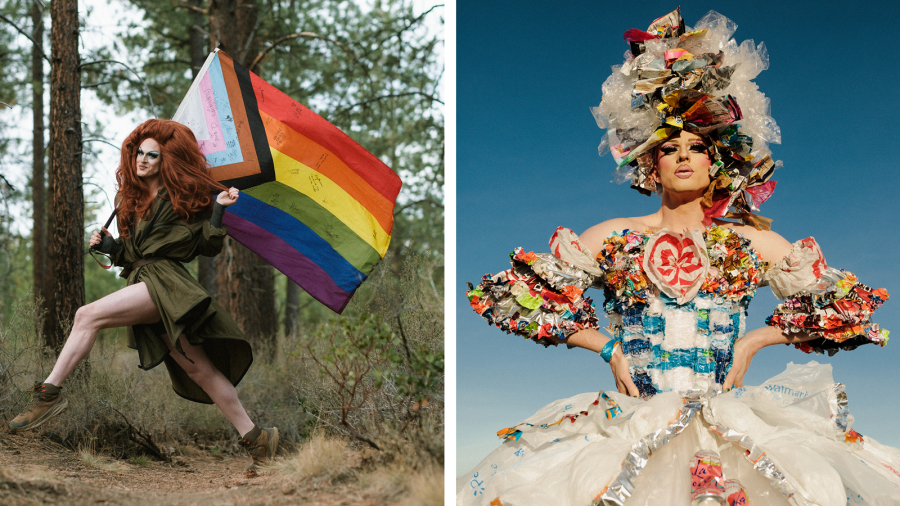Hey y’all. This is the last week to fill out our Looking Forward audience survey. What do you like about this newsletter? What would you like to see change? Take 5 minutes to tell us how Looking Forward can be even better for YOU. We appreciate it!
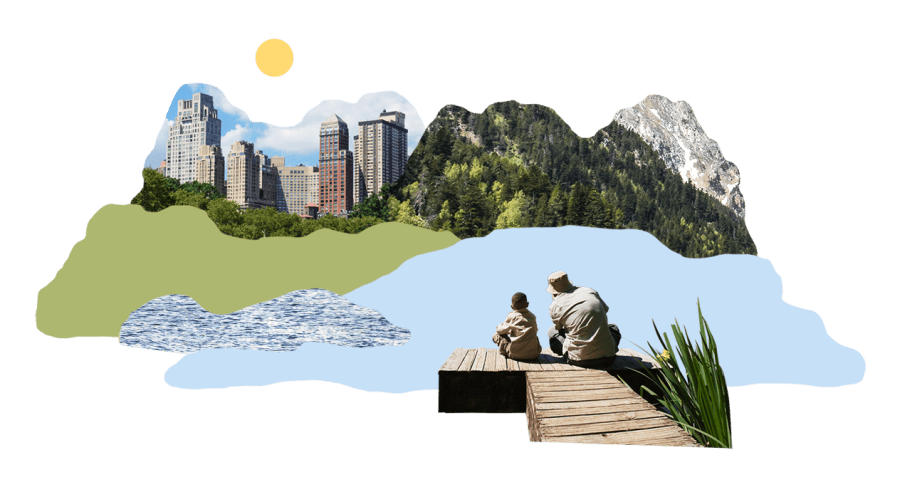
The vision
“My biggest hope for the world is that we realize that the natural world is an illusion. It is us, and we are it.”
“My conservation has always had this angle that had people at the center. That’s because of my grandma’s stories.”
“Witnessing how bruised the landscape was really brought home how things need to be done now to prevent that. It made the stakes so much clearer.”
“Outdoor recreation is the first step in creating conservationists. And in that process, they are not only saving the environment but saving their own lives.”
— Reflections from Nikayla Jefferson, Bray Beltrán,
Bernard Ferguson, and Debbie Njai

The spotlight
Every time we leave our homes, we step into the great outdoors. Whether we’re walking to work, tending to a backyard garden, or going for a hike, a swim, or a ride, we touch the natural world in a multitude of ways. And the things we see and do there inform the way we understand climate change, environmental justice, and our own place in the world.
Spending time outside, or even looking at images of nature, makes us feel less stressed, less angry, and more connected to the greater it. And studies have shown that children who play outside develop curiosity, confidence, and, importantly, a sense of care for the environment around them. Many climate leaders credit their passion for environmental advocacy to a love for nature, whether that grew from formative childhood experiences or connections they made as adults.
Of course, outdoor respite isn’t universally accessible. Cost, location, physical demands, and the intolerance of other people are just a few examples of the barriers that can prevent all from enjoying the outdoors equally. Working to break down those barriers, then, is a kind of climate solution — ensuring everyone has a place in nature, so that everyone can play their part in protecting it.
These are some of the ideas that underpin Fix’s latest digital exploration: The Outdoors Issue. In the issue’s centerpiece project, we asked 26 climate and justice leaders to share memories of the outdoor experiences that changed their lives in a variety of ways. Their stories show that there’s no one path to connecting with the natural world, just as there’s no single solution that will solve the climate crisis.
We’re sharing a few of their memories here, to inspire you on your own nature path.

Fighting for the Reef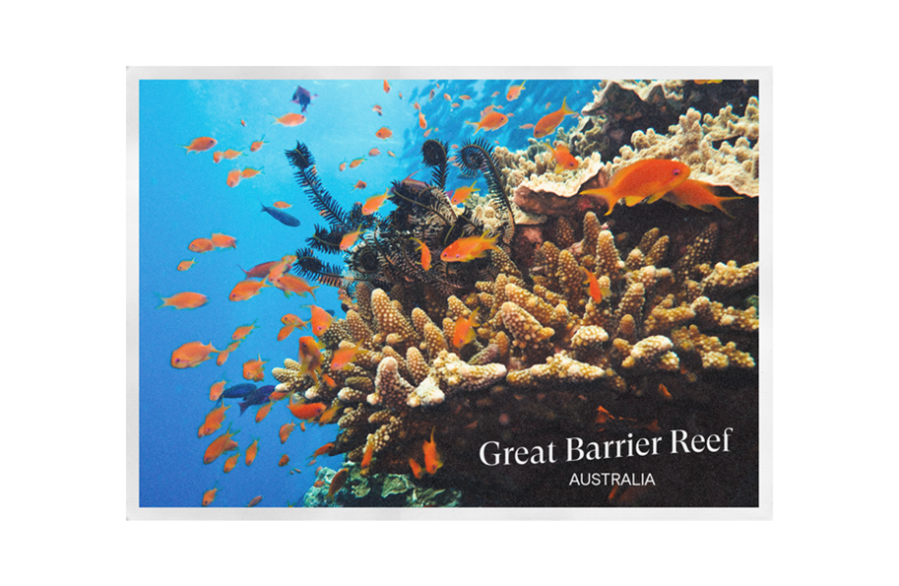
I was born in Singapore. My father taught us about various things in the environment, and he loved to keep tropical fish. I migrated to Australia as a student and [fell in love with] the diversity of animals — kangaroos, wombats — and the Great Barrier Reef is such an amazing wonder. In 2017, I came across an article about the danger of losing the reef, and discovered that [multinational conglomerate Adani was] going to start a mega coal mine in Queensland. It upset me to think that my grandchildren may not be able to see the Great Barrier Reef in nature. They might have to go to the museum to see what was. So I connected with other people, went to central Queensland, and locked myself to a gate. That was my first activism. Since then, I’ve been arrested three more times.
— Audrey T. Cooke
Australian “granny” and climate activist
The Bigness of Nature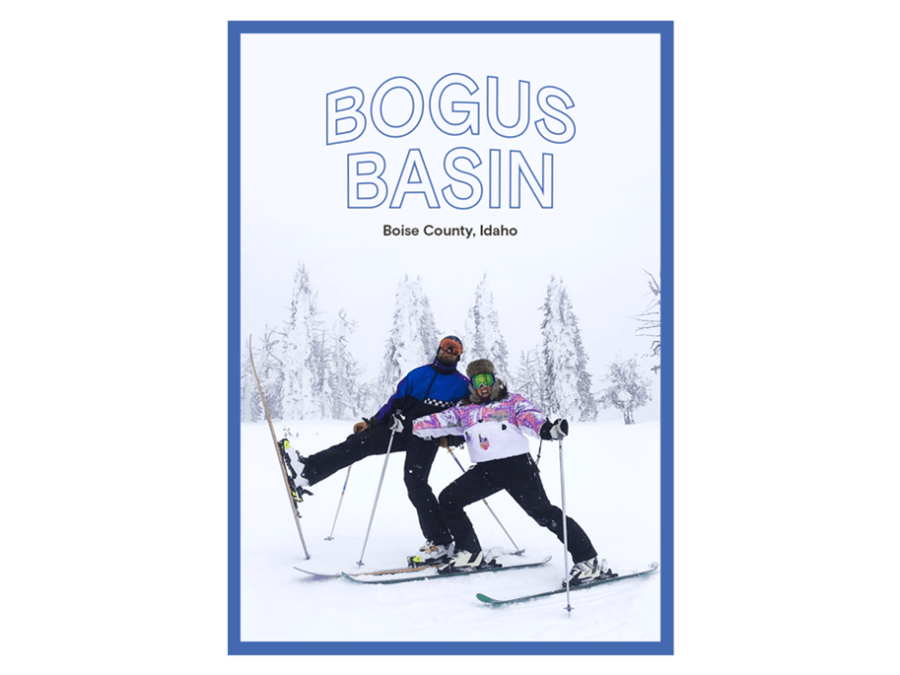
Here in Idaho, it’s pretty regular that your middle school will go on a trip to the local ski hill, Bogus Basin. I remember having to go home and get a permission slip signed by my mother so I could go. Part of that was renting the gear. The cost for renting the snowboard was $21, and I remember feeling like that was a really big ask of my mom. She was a server in a restaurant, in a really small, rural town, and every dollar mattered. I felt guilty about asking, but I was also really excited because it was something all my friends were doing and I didn’t want to miss out. My mom ended up picking up an extra shift so that we could afford the rental. In all of that, there was a moment, standing on top of Bogus Basin and looking down at the city and feeling the bigness of nature, that really connected me to Idaho in a deep way.
— Rialin Flores
Executive director of Conservation Voters for Idaho
Living off the Fat of the Land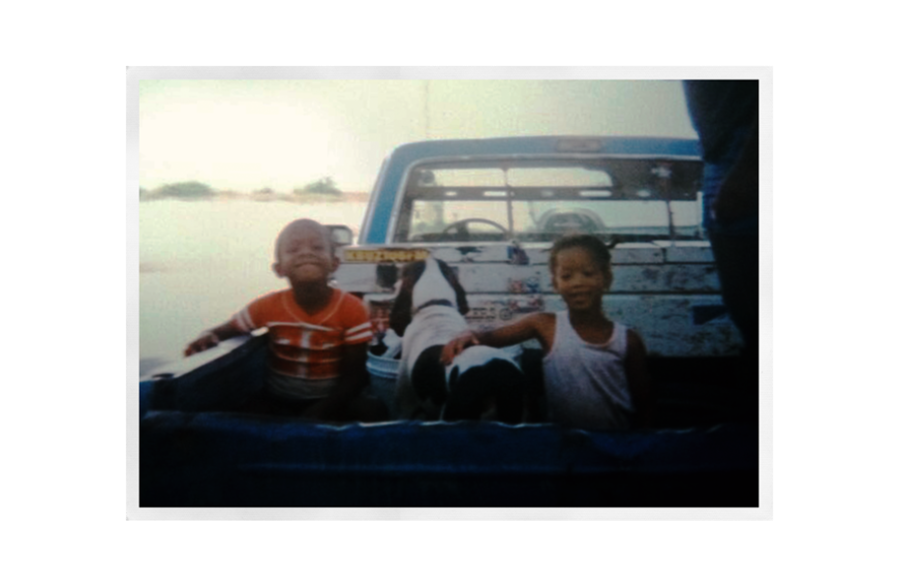
From ages 12 to 18, I lived on a farm on the outskirts of Lawrence, Kansas. I had 11 brothers and sisters. We grew wheat, fruit, and [raised] animals. We had to get our own firewood, our own eggs. We called this “living off the fat of the land.” Being responsible for the land means you take care of it, and it takes care of you. There’s an element of freedom in there — freedom and democracy. I would say that farming, agriculture, the whole process is democracy in action. Having those life experiences really shaped the way I look at the environment. There’s so much give and take — not necessarily compromise, but cooperation.
— Mitchell Pearson
Urban farmer and educator; founder of Phi Global Farms
More exposure
- Read: explore more stories in our Outdoors Issue!
- Like this essay on the harms of ableism in outdoor recreation.
- Or this piece about “biophilic design,” and the benefits of mimicking nature in our built environment.
- Or this how-to on foraging — a practice even city dwellers can find fruitful.
See for yourself
Do you have a nature memory of your own to share? An experience that changed your outlook, or catalyzed your path to engaging with environmental issues? Tell us about it! We’re collecting outdoors stories to share on a new Instagram account throughout the spring. Follow along for more.
On our horizon
- On May 11, join us for Fix Live: Let’s Ride — a conversation with mobility justice advocate (and Grist 50 Fixer) Oboi Reed about equity, community, and cycling in the urban outdoors.
- Have we mentioned this little old audience survey? A big thanks to those who have filled it out already! If you haven’t yet, please take five minutes to tell us what you think of Looking Forward, and what we can improve. And you’ll be entered to win a free copy of The Intersectional Environmentalist, a primer on inclusive changemaking by Grist 50 Fixer Leah Thomas (published by Voracious).
A parting shot
If you haven’t already been introduced to the fabulous stylings of drag queen and environmental advocate Pattie Gonia, we recommend adding that joy to your feed.
